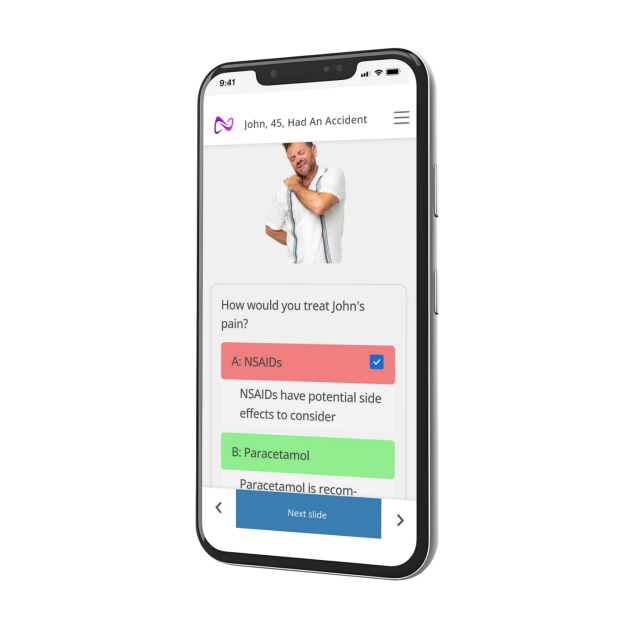
- ENG
- CRO

Case studies enable the simulation of real clinical scenarios, which is essential for developing critical thinking and decision-making skills in a safe environment. By using the Nobula Case Creator app, educators can tailor scenarios to the specific needs of medical education, including visualizing diagnostic images, creating questions, and adding live feedback and statistics.
In the context of case studies, these are the key features of the Nobula Case Creator that you can utilize for educating medical students or healthcare professionals in general.
Basic Features:

Advanced Features:
Additional Capabilities:
Medical education requires the simulation of real-world situations, and the Nobula Case Creator helps students develop practical skills and prepare for the real world. It also allows for continuous evaluation of their abilities through scenario branches and personalized feedback.